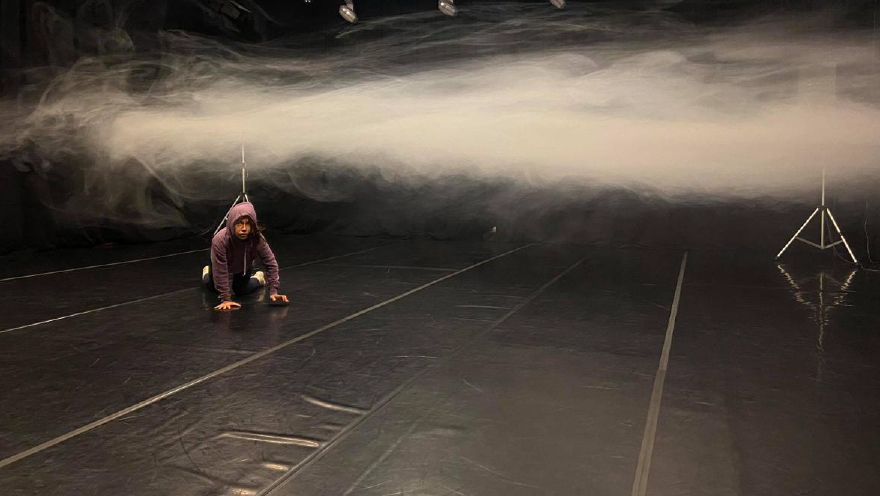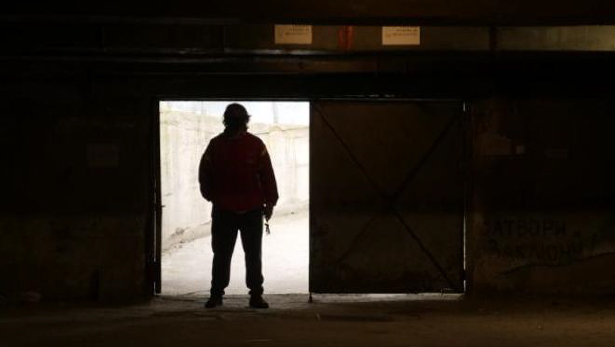Partners
MIRROR TOUCH
Date
11/10/2021
Director
Producer
Script
Budget:
€ 12 250
Contact
romanpessarov@gmail.com
Contact
i.gurova@ifilmproduction.com
Logline
Victor (32) suffers from a rare neurological disease, which prevents him from experiencing the sense of touch. His life is turned upside down when he meets Dia (26) and discovers that the two of them are connected in an empathetic way, and he can feel everything she feels. Victor is determined to experiencing everything he couldn’t feel until now, and he is ready to go to extremes.
Synopsis
Victor, naked, is looking at himself in the mirror in his apartment. His whole body is covered in old scars and burns. He is looking for fresh wounds. The next day, Victor is in his office. He is talking to two coworkers in the kitchen. One of them, Bobby, asks him to pass him a cup that he was warming in the microwave oven. Without thinking much about it, Victor hands him the cup and Bobby immediately drops it. He is heavily burned. Victor doesn’t appear to feel a thing, but blisters are rapidly forming on his hand. The same evening, Victor and his coworkers are at an interactive performance. The topic of the show is “The Sensation of Touch”. During the show, the dancer, Dia, has an interaction with Victor and he appears heavily affected by it.
After the show, Dia finds Victor and they talk. He shares with her that he has a rare neurological disease, which prevents him from feeling any sense of touch whatsoever. However, during their interaction, he felt everything she did. Dia is intrigued by having such an effect on another human being. They meet again the next day and she shows him different sensations by touching various things in front of him: fabric, water, warmth, etc. After spending the day together they head to her apartment to continue the experiments.
Victor is visibly overexcited. Dia demonstrates him pain – she pricks herself with a needle, spills hot wax on her skin and finally drags a knife across her skin. Victor asks her to cut herself, but she adamantly refuses. He insists and Dia gets scared and asks him to leave. In the next days Victor tries to contact Dia, but she ignores him. He stalks her, but she asks him to stop. Desperate, Victor contacts two low-level criminals and pays them to kidnap Dia and inflict pain on her while he is watching. One night, they take her to an empty parking and start beating her. Victor is watching. He is visibly in agonizing pain. We don’t see Dia, but we hear her screams, while Victor is watching in great pain, but with a lot of interest.
Her beaters take out knives and start cutting her. Victor’s pain is growing, and when he finally can’t take it anymore, he turns his head around, so he won’t see Dia anymore. His body immediately relaxes, while Dia’s screams can still be heard. Victor stands up and leaves without looking back, while Dia is still getting beaten. The next day Victor is back at work. With his curiosity finally satisfied, he is in a very good mood.
Director’s Statement
This is the origin story of an abuser, told from his point of view, as he uses a woman’s body as a tool to satiate his needs, without ever considering the pain he will inflict upon her. The fictitious physical condition that he suffers from serves as a metaphor for a lack of empathy. The idea was born years ago as a thought experiment. It occurred to me that if a man were born without the ability to feel touch, that person would inevitably grow to be a psychopath because physical contact is essential for the development of empathy. While attempting to craft an interesting story with such a protagonist, I discovered a psychological phenomenon named mirror-touch. This is a rare form of synesthesia that allows a person to perceive the sensations of others as their own. Screenwriter Elena Toncheva and I decided to write a story about an abusive and dangerous man, who finds himself sharing such a connection with a young woman.
The performers must be adept at using their bodies because the synchronicity of their movements will be essential. I think that Leonid Yovchev is a great choice for the role of Victor precisely because he has shown plasticity in several roles. His extensive experience shows that he can portray all the stages that character goes through, starting with alienation, followed by curiosity, and ending in obsession. My visual goal is to represent two worlds. Victor’s is sterile and cold, and Dia’s is chaotic but beautiful. These inner worlds and their intertwining will be depicted through a variety of cinematographic, editorial, and musical techniques. In the beginning, the camera will be precise, with minimal movement and honed in on Victor. The world around him will be unimportant, out of focus, and the sound will be muffled. Upon meeting Dia, there will be a stylistic shift. During her dance, the camera will depict every movement of her body. From that point onward, the focus will be on her. After she rejects his extreme desires, a new change will take place, in line with his growing obsession. The cinematography will be off-kilter, handheld, and intentionally unpleasant. The soundtrack will become aggressive and loud, and the editing chaotic. When the peak of horror is reached and Victor achieves his horrible goals, the aesthetics will revert to those of the beginning of the film. To achieve these ambitions, I plan to enrich my crew of debutants by adding an experienced cinematographer. This project draws inspiration from a more brutal and aggressive tradition of arthouse cinema, common in Western Europe. A good example is the works of directors Nicholas Winding Refn and Gaspar Noé, both of whom influenced the writing of the screenplay. It is challenging from a director’s perspective because, when addressing such themes there is always a risk of aestheticizing violence. This is something the filmmakers that inspired me have been accused of. To avoid this we will keep the violence off-screen, and suggest events more than show them. The story of a man devoid of empathy interests me as a way of exploring toxic one-sided relationships between men and women. Those in which there is a total disrespect for the other, a desire to use women to satisfy interests and whims, without any respect for them as humans, let alone as individuals. It’s a dark and challenging subject matter, but one I’m eager to explore.
Director’s Bio
Roman Pessarov is a Bulgarian aspiring producer and director who has been working for Nu Boyana Film Studios since 2016. He also co-founded the videography company Plonj, in 2017.
As part of Nu Boyana, Roman has worked as a cinematographer and editor for a variety of behind the scenes documentaries for Millennium Films. The first one was for the movie BULLET HEAD (2017), written and directed by Paul Solet and starring Adrien Brody, John Malkovich, and Antonio Banderas. This was followed by the Nicolas Cage starring drama #211 (2018), and then HELLBOY (2019) directed by Neil Marshall and starring David Harbour, Mila Jovovich, and Ian McShane. In 2018 he worked as a trainee assistant director on Rambo V, directed by Adrian Grunberg, starring Sylvester Stallone. Working on set has allowed him to observe and learn directly from highly qualified professionals. Since late 2019 he has been working in the Business Development department in Nu Boyana, working on script breakdowns and budgets. As a freelancer, he has attended the European Film Market in Berlin for two consecutive years, representing an English-language feature screenplay he developed.
Roman has a Bachelor’s degree in Film Studies and Video Production from the University of West London.
Producer’s Bio
Irina Gurova is a Bulgarian producer who founded the film production house iFilm in 2017. Her latest project as a co-producer is the Bulgarian-Spanish feature film LIUBEN. In 2021 her short THE ARCHITEC, written and directed by Kiril Todorov, premiered during In The Palace IFF. Irina is Executive producer of the feature THE BLOCK (in production). She was an associate producer of the Italian documentary BAIKONUR, EARTH, which premiered in Vancouver IFF 2018 and now is available on NETFLIX in 35 countries.
Irina holds a Master of Science in Economics and Management in Arts, Culture, Media and Entertainment at Bocconi University (Milan, Italy). Prior to launching iFilm, she had worked for the Nu Boyana Film Studios as a business developer and later in the production service company Mainstreet Entertainment again as a business developer executive. During the years she worked as a freelancer for various production houses on TV series, films, music videos and commercials.

















